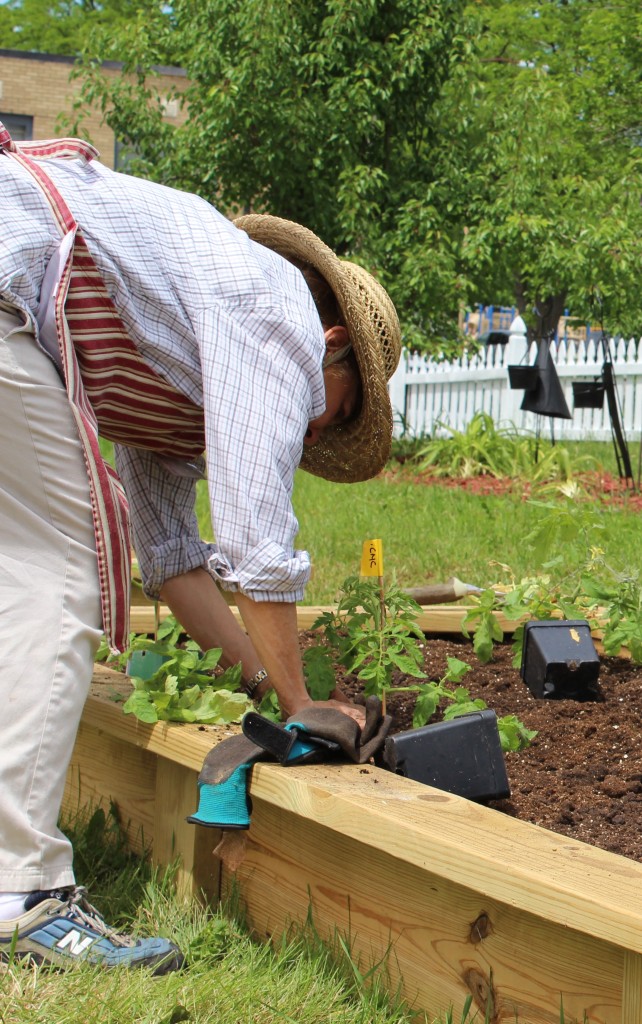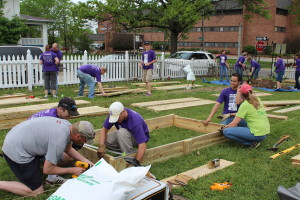 Four years ago, the Catherine McAuley Center adopted Gateway Garden, a plot owned by the Wellington Heights Neighborhood Association. Designed to “create opportunities for the women to learn about fresh foods,” according to Jennifer Tibbetts, Transitional Housing Program Manager, the garden has provided residents with fresh fruit, vegetables and herbs. This year, thanks to a grant from Soroptimists of Cedar Rapids/Marion,the Center will complete the largest scale effort yet to improve the garden’s function and accessibility.
Four years ago, the Catherine McAuley Center adopted Gateway Garden, a plot owned by the Wellington Heights Neighborhood Association. Designed to “create opportunities for the women to learn about fresh foods,” according to Jennifer Tibbetts, Transitional Housing Program Manager, the garden has provided residents with fresh fruit, vegetables and herbs. This year, thanks to a grant from Soroptimists of Cedar Rapids/Marion,the Center will complete the largest scale effort yet to improve the garden’s function and accessibility.
At this year’s United Way Day of Caring, employees from Rockwell and Transamerica helped prepare the garden and install raised beds to make the plots more accessible and increase resident participation. With a plan to grow 800 pounds of produce, the residents have teamed up with Cedar Rapids-area Master Gardeners for their expertise in garden design, planting, and cultivation. Plans include twice-monthly sessions where Transitional Housing Program (THP) residents will learn about gardening basics like healthy plant growth, harvesting, canning and preservation. “Part of the project is learning how to give,” says Master Gardener Diane Wiesenfeld. Residents will gain access to fresh produce and donate excess food to CMC’s Adult Basic Education Program and area homeless providers. Cooking classes led by the Soroptimists, the ISU Extension Office, THP staff and other community volunteers will be held in the program’s teaching kitchen (an earlier Soroptimist-sponsored project) and will teach residents how to best use the healthy and essential food options the garden provides.
 Karen Vlasek, a Soroptimist member, says that although the monetary donation is paramount, this project “couldn’t happen without community involvement.”
Karen Vlasek, a Soroptimist member, says that although the monetary donation is paramount, this project “couldn’t happen without community involvement.”
In the end, the grant will allow a greater number of current and former CMC residents to reap the benefits of gardening. Beyond affordable access to fresh produce, the garden is a valuable therapeutic tool. According to Jennifer, “It allows women to explore their interests and gain a sense of accomplishment.” Another bonus? “I call it ‘dirt therapy.’ When women are outside and working in the garden, they start to talk to each other and build sisterhood.” It’s a community garden in every sense.
